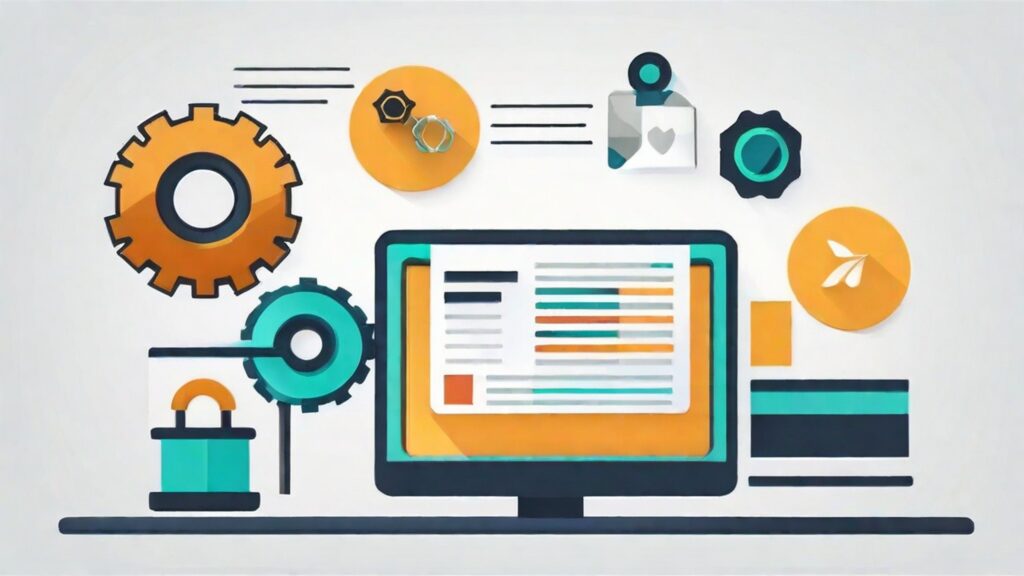Software quality assurance (QA) certifications have become increasingly important for aspiring and experienced software testers looking to advance their careers. As software systems grow more complex, companies rely on QA professionals with proven expertise to ensure product quality and user satisfaction.
Obtaining QA certifications can benefit your career in several key ways:
- Certifications validate your skills and knowledge in key QA areas like testing methodologies, processes, and tools.
- They demonstrate your commitment to the field and ongoing education.
- Certified QA professionals often enjoy improved job prospects and higher salaries.
- Certifications allow you to specialize in high-demand niche areas like agile testing.
- They boost your confidence and credibility as a QA expert.
In today’s competitive job market, certifications are becoming an essential milestone in any successful software testing career path. They equip QA professionals with specialized expertise to tackle the most pressing quality challenges. This guide will explore the top certifications for software testers looking to advance their skills and opportunities.

ISTQB Foundation Level Certification
The ISTQB Foundation Level certification is an internationally recognized entry-level qualification that provides a strong understanding of software testing concepts. It is the most popular and widely held certification for software testers.
Some key benefits of obtaining the ISTQB Foundation certification include:
- Gaining credibility as a software tester in the job market.
- Improving career prospects and opening doors to new job opportunities.
- Learning core testing terminology, principles, techniques, and processes
- Demonstrating a commitment to advancing your software testing skills and knowledge
To prepare for the ISTQB Foundation Level exam, candidates should study the official syllabus and curriculum. Some recommended preparation resources include:
- ISTQB-certified training courses
- ISTQB Foundation Level study books and mock exams
- Online learning materials and practice tests
- Hands-on experience in software testing
With diligent study over 2-4 weeks, most candidates are ready to pass the 1-hour, 40 multiple choice question exam. Obtaining this quality assurance certification is a great way to launch your career as a software tester.

Certified Associate in Software Testing (CAST)
The Certified Associate in Software Testing (CAST) is an entry-level certification focused on basic software testing concepts and terminology. It covers software testing principles, practices, tools and techniques The CAST certification is administered by the Software Testing, Verification, and Validation Workforce Improvement Program which is led by the Software Engineering Institute at Carnegie Mellon University.
Some key benefits of obtaining the CAST certification include:
- Validation of your knowledge of software testing fundamentals
- Improved credibility as a software tester
- Greater opportunities for entry-level software testing roles
- Foundation for advancing to higher certifications
To prepare for the CAST exam, it is recommended to study resources such as:
- Official CAST Review Manual
- CAST Online Review Course
- CAST Sample Questions
- Books and practice tests focused on software testing basics
Gaining hands-on experience with software testing tools and projects can also help reinforce key concepts covered in the exam.
With diligent preparation using recommended study materials and practical experience, software testers can demonstrate their understanding of core testing principles by obtaining the CAST certification.
Certified Software Quality Analyst (CSQA)
The Certified qa software testing certification is offered by the Quality Assurance Institute and demonstrates expertise in software quality assurance processes, methodologies, and tools. It covers topics like requirements analysis, testing, risk management, and quality management frameworks like CMMI and Six Sigma.
Pursuing a CSQA certification provides several benefits for your QA career. It validates your knowledge and skills in quality assurance best practices, methodologies, and tools. This can help you advance to senior QA roles and higher salaries. The CSQA is globally recognized and shows you have the expertise to lead quality initiatives and improve software development processes.
To prepare for the CSQA exam, you should have at least three years of work experience in software development, testing, or quality assurance. Study materials are available through the CSQA Institute, including training courses, mock exams, and study guides. You’ll need to understand QA concepts like audits, standards, metrics, and models like the PDCA cycle. Hands-on practice with QA tools and methodologies is also important prep for the certification exam.
Certified Test Engineer (CSTE)
The Certified Software Test Engineer (CSTE) certification is offered by the Quality Assurance Institute and demonstrates expertise in software testing and quality assurance. It covers test processes, security testing, test management, and test techniques.
Obtaining the CSTE certification shows employers you have the skills to lead testing teams, improve testing processes, and implement test automation. It can lead to career advancement opportunities and higher salaries.
To prepare for the CSTE exam, you should study the current CSTE common body of knowledge, get hands-on experience with test planning and test management, and take practice exams. Some helpful study resources include CSTE exam preparation courses, the CSTE study guide.
Certified Software Quality Engineer (CSQE)
The Certified Software Quality Engineer (CSQE) certification is offered by the American Society for Quality (ASQ). It demonstrates expertise in software quality development and process implementation (Software Quality Engineer Certification -Get CSQE Certified).
To be eligible for the CSQE exam, candidates need to have eight years of professional work experience. The exam covers topics like software quality development, verification and validation, quality tools and techniques, and quantitative methods (Why Is Software Quality Engineer CSQE One of the Happiest Fields).
Obtaining the CSQE certification demonstrates expertise in implementing software quality processes and can lead to career advancement opportunities. It is ideal for those working in software quality assurance, testing, development, and project management roles (ASQ CSQE Certification Career Benefits).
To prepare for the CSQE exam, the ASQ recommends studying the Certified Software Quality Engineer Handbook. The exam has 165 multiple-choice questions and lasts 4.5 hours. ASQ offers CSQE exam preparation training to help learn the required knowledge areas.
ISTQB Agile Tester Certification
The ISTQB Agile Tester certification focuses on testing skills and techniques specific to Agile software development. It covers topics like the fundamental Agile testing principles, techniques, and tools. The certification provides a strong foundation in Agile values, practices, and testing processes.
Some key benefits and career opportunities of obtaining the ISTQB Agile Tester certification include:
- Demonstrating your knowledge of Agile software testing principles and ability to work effectively in an Agile team
- Improving your testing skills and techniques specifically for iterative and incremental development environments
- Gaining expertise in test automation, acceptance testing, and other areas critical for Agile
- Expanding your career opportunities as more companies adopt Agile methods
To prepare for the ISTQB Agile Tester certification exam, focus your studies on the key topics and modules in the official exam syllabus. Some recommended preparation resources include:
- ISTQB-approved training course with an accredited provider
- Study books and guides focused on the ISTQB Agile Tester syllabus
- Mock exams and sample questions
- Hands-on practice with Agile testing tools and frameworks
Choosing the Right Certification
With so many options for software QA tester certifications, it can be challenging to determine which one is the best fit for your career goals and experience level. Here are some key factors to consider when selecting a certification:
Align your certification path with your long-term career plans. Look for certs that match your desired job role and skills. For example, the CSQA is a good choice if you want to become a QA analyst, while the CSTE suits QA engineers. The ISTQB Foundation is better for early career testers.
Consider your current skill level. Some advanced certs like the CSTE require hands-on experience, so start with an entry-level cert and work your way up. The ISTQB Foundation is a common starting point.
Research the reputation and recognition of the certification in the industry. Well-known certs like ISTQB and CSQE are valued by most employers.
Look into the exam format and costs. Factor in the fees, preparation time, and availability of training materials.
Talk to experienced QA professionals in your network. Seek their advice on which certifications proved most useful for their career growth. As per a QA manager on H2k Infosys ISTQB and CSQE are among the top recognized QA certifications.
Choosing the right software QA tester certification requires balancing your skills, interests, and career aspirations. Aligning your cert path with your goals and seeking input from professionals will help guide your decision.
Preparing for Exams
Proper preparation is key to passing any software QA certification exam. Here are some tips to help you get ready:
Study Resources
Use official study guides, practice tests, and online courses to learn the material. According to the ASTQB, studying the official exam syllabus is crucial (ASTQB). You can also find study resources through certification bodies like the ISTQB.
Effective Preparation
Create a study plan and schedule regular review sessions. Focus on thoroughly learning one section at a time instead of cramming everything at the end. Take practice exams frequently to identify weak areas.
Hands-on Experience
Supplement book learning with practical experience through work projects or volunteer testing opportunities. Hands-on software testing will help reinforce your knowledge and prepare you for real-world exam questions (Indeed).
Conclusion
In conclusion, obtaining certifications in software quality assurance can significantly benefit your career growth and development. The top certifications we covered include the ISTQB Foundation Level Certification, Certified Associate in Software Testing (CAST), Certified Software Quality Analyst (CSQA), Certified Test Engineer (CSTE), Certified Software Quality Engineer (CSQE), and ISTQB Agile Tester Certification. These industry-recognized certifications validate your skills and expertise, making you more competitive for QA tester roles.
I highly encourage aspiring and experienced QA testers to pursue certifications relevant to their career goals. The investment in exam fees and preparation is well worth the long-term dividends of improved job prospects, higher salaries, and accelerated career advancement. With the right certifications, you can showcase your dedication to the field and position yourself as an authority in software testing and quality assurance.


